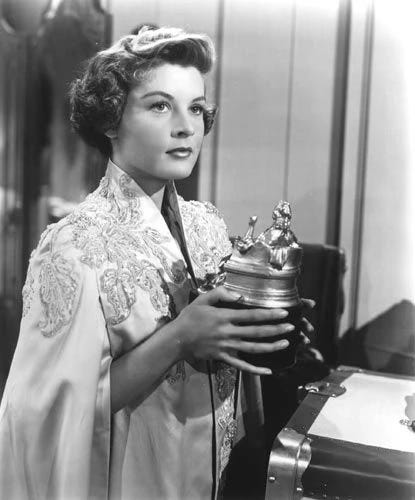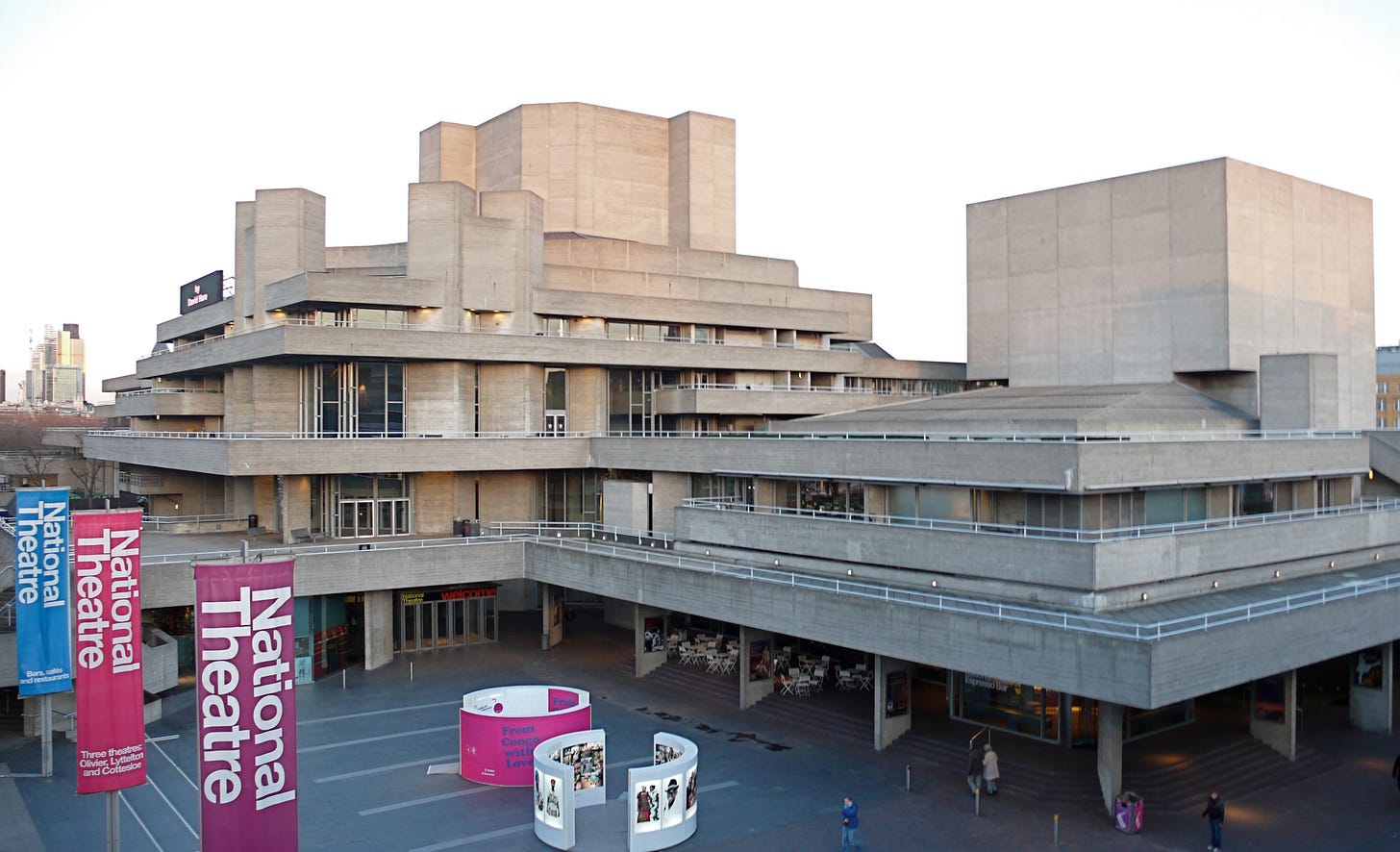"I call myself Phoebe."
[thoughts on punctuation and identity]
As I was learning my copyeditorial trade lo these many decades ago, one rule among myriads that I learned involved people whose names include initials. Quite simply, if a person makes use of two initials where a given name1 and middle name might be expected to be found, or sets two initials smack in the middle of the whole enterprise, one styles the name thus:
H. L. Mencken
T. S. Eliot
George R. R. Martin
That is, with even spacing between all elements:
H. L. Mencken rather than H.L. Mencken
T. S. Eliot rather than T.S. Eliot
George R. R. Martin rather than George R.R. Martin
Why?
Just a visual thing. The even spacing is, as I was taught and came quickly to believe, prettier.
For those rare folk who wield three initials in succession, most famously2 the author of The Hobbit and The Lord of the Rings,3 one keeps things tighter:
J.R.R. Tolkien
Again, just a visual thing.
J. R. R. Tolkien, the thought goes, looks rather interminable.4
All of which was all well and good till people increasingly began using initials not as a professional representation of their given (and middle) names but, truly, in place of their given (and middle) names.
We might famously cite, for instance, Polly Jean Harvey, i.e., PJ Harvey; Kate Victoria Tunstall, best known to us as KT Tunstall, the KT not even standing in for her first two names but, to be sure, making the sound of “Katie”;5 and of course our beloved Kathryn Dawn Lang, who’s built her career as k.d. lang.6
But those name renderings, I note, are what we might call Dramatically Different. One sees them, one learns them, one uses them, everyone recognizes them. They’re as effective as (and I suppose more or less are) branding, like Jell-O or Post-it.
What, though, more subtly, of a person who may have been named shortly after birth, say, John Barrymore Surname but who likes to be called, whether their surname is being evoked or not, J.B.? Or, for instance, a certain British-born writer of overblown and overlong fascist-leaning children’s fantasies whose nom de plume7 I have no intention of mentioning here?
Or—
Here we go—
—a person born James Donald Bowman, who at some point, through adoption, became James David Hamel, who at some later point took on the surname of his maternal grandparents, Vance,8 and who is now, speaking of fascist-leaning fantasies, a vice presidential nominee? A glance at the cover of that memoir of his (whose name I also have no intention of mentioning here) shows his name rendered not as James David Vance (or James Donald Bowman or James David Hamel or even as, as I would style it, J. D. Vance) but as J.D. Vance.9 And up until a few days ago, that’s also how one saw his nom de candidacy rendered at most of our major journalism venues.
Until the Washington bureau of The Wall Street Journal (and possibly other Washington bureaus of other newspapers, but the Journal’s Washington bureau is the one I read about) “checked with Vance’s office and confirmed that [a] no-periods style is his preference . . . and our newsroom is now using that approach.”
So JD Vance it apparently now is.10
Because, of course, one respects how people wish to be known, from their multiple aliases to their preferences re initials to their, oh, say, pronouns, doesn’t one.
Speaking of what is or isn’t in a name, to paraphrase Mr. Shakespeare, other people have covered attentively and exhaustively the proper styling of the pen name of the poet Edward Estlin Cummings and the middle initial of the thirty-third president of the United States, so suffice it to say:
E. E. Cummings
Harry S. Truman
As far as I’m concerned.
Oh, I almost forgot. Why does this little essay have such a peculiar title?
In honor of the exchange in All About Eve between George Sanders, as the acidic theater critic Addison DeWitt, and Barbara Bates, as an interloping young would-be actress who’s warming up to show the interloping eponymous actress Eve Harrington a thing or two about teeth-baring ambition:
Addison DeWitt: And what’s your name?
Interloping Young Would-Be Actress: Phoebe.
Addison DeWitt (dubiously): Phoebe?
Phoebe (emphatically): I call myself Phoebe.
Addison DeWitt (whose thought bubble seems to read “oh, this is going to be rich”): And why not.
H/t, as they say, to my chum Mark Harris, who I hope will get a nice giggle out of this.
You too: Please giggle. If you’re so inclined.
Or call yourself Phoebe. If you’re so inclined.
Department of Ain’t Nothin’ Goin’ On But The Rent
Thank you for being here, thank you for following, thank you for subscribing. All of this substackery of mine is free and will remain that way. Which means that if you have chosen to contribute to its and my upkeep,11 in larger or smaller ways, you are doing something that you don’t have to do, which makes your generosity that much more resonant. I am profoundly grateful. And if you’re not yet part of that contributing crew and there’s a part of you that’s thinking “You know what? I like this guy” and you choose to join the crew, I will be eternally (or at least monthly or annually) in your debt.
Have a lovely week.
Think lovely thoughts.12
Benjamin
P.S. Yesterday afternoon I posted what I like to think of as a sweet little story, mere minutes before President Biden posted his sweet little story, and I fear that it (mine, that is, not his) got a little lost in the uproar. So ICYMI…
That is to say: a first name. Or, in the ancient parlance: a Christian name. Oh boy.
The second most famous, I suppose, is the writer W.E.B. Du Bois, the W.E.B. standing for William Edward Burghardt and the Du Bois pronounced (did you know?) Dew-BOYCE.
Random House, my alma mater, favored setting individual book titles in italics (the tilty type) but the names of entire book series in roman (the straight up-and-down stuff), thus The Fellowship of the Ring but The Lord of the Rings, A Game of Thrones but A Song of Ice and Fire. With a nod to the assertion that the Tolkien trilogy is not a series of novels but one novel in three parts, and simply for visual unity in this particular discussion, I’ve gone above with The Lord of the Rings. I might well do otherwise elsewhere.
[Peter Jackson joke goes here.]
Here’s her charming comment: “[Kate] just makes me think of a buxom lass baking bread for her man working in the fields. I have no problem with that, but it’s just not really how I pictured being a rock star.”
This particular name (I’m afraid that I’m constitutionally unable to lowercasedly begin a sentence “k.d. lang’s name,” so a workaround must be devised) reminds us that when people choose to style their names in full lowercase—see also, for instance, bell hooks—one respects that choice. (More on the concepts of “respect” and “choice” to follow above.) And though the temptation persists to call attention to this choice with a “who styles herself as,” there comes a time when a person’s a bit too famous for that sort of commentary (see as well mononymed folk like Cher and Madonna) and to indulge in it might make one look like a rube. As always, context and good judgment should prevail over absolute uniformity. Which is to say: You’ll figure it out.
Here’s an interesting thing I’ve just learned: Though “nom de plume” looks like a French term, because of course it’s comprised of French bits and pieces, the term was in fact coined in English by English-speaking people, with a tip of the hat to the authentically French “nom de guerre.” In any event, even if it were authentic French, it would be by now accepted as domesticated English and thus set in roman, like, say, hors d’oeuvres and prêt-à-porter.
Mamaw and Papaw, they were called, I’m told.
Had that memoir been published by Random House, might I have persistently rammed a bit of space into the writer’s name every time I saw it to make it J. D. Vance? You bet. Might I have gotten away with it? Possibly. Possibly not.
Post-publication addendum, August 4, 2024: In the weeks since I first posted this piece, it’s interesting (at least to me) that though some news media publications/sites have gone over to the “JD Vance” style—including, besides The Wall Street Journal, The Washington Post—some have persisted in “J.D. Vance,” presumably, or so I’m presuming, because they value their house style over the preference of the owner of the name. (Or, I dunno, maybe they’re just slow.)
I’m reminded that a certain paper of record, perhaps a gray and ostensibly feminine one, is so brutally keen on the spelling “theater” (which is, to be sure, perfectly appropriate for all generic references to the dramatic art and to the buildings in which it is performed—plus of course movie theaters—at least if you’re an American writing in the United States) that they have taken it upon themselves to rename any number of Broadway houses of long standing (it’s the St. James Theatre, not “the St. James Theater,” for instance, the Shubert Theatre and not “the Shubert Theater”) and, perhaps even more sillily, edifices/institutions overseas, as they persistently refer to the nonexistent “National Theater” on the south bank of the Thames.
On the other hand, theaters that are indeed called Theater should, of course, have their styles honored as well: New York’s Lincoln Center Theater and Public Theater, to name just two.
Proper nouns are proper nouns, I remind, not for the first or the last time. The St. James Theatre is the St. James Theatre; the Shubert Theatre is the Shubert Theatre; the National Theatre is the National Theatre; the UK’s Labour Party does not become “the Labor Party” just because you’re writing about it in the United States; and there is no such place as “Pearl Harbour,” at least not in Hawaii.
That’s English for the English “nom de plume.”





Unrelated to punctuation, but: My Bluesky pal Glenn Fleishman informs us that Vance (vantz) means “bedbug” in Yiddish.
"Because, of course, one respects how people wish to be known, from their multiple aliases to their preferences re initials to their, oh, say, pronouns, doesn’t one."
Yet another example of why I'm so happy to support you on Substack.